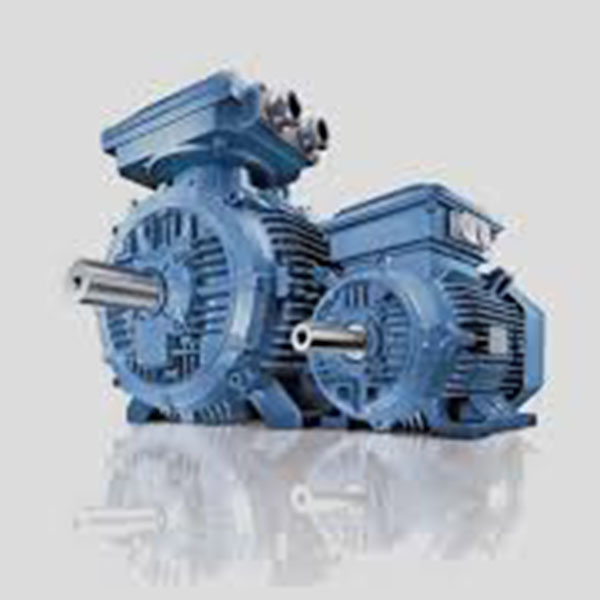Frequency conversion speed regulation usually refers to such an electromechanical system: frequency conversion speed regulation induction motor, frequency converter, programmable controller and other intelligent devices, terminal actuators and control software, etc., constitute an open-loop or closed-loop AC speed regulation system. This kind of speed control system is replacing the traditional mechanical speed control and DC speed control scheme in an unprecedented situation, which greatly improves the degree of mechanical automation and production efficiency, and makes the equipment increasingly miniaturized and intelligent.
Looking at the energy consumption of all motors in industrial applications, about 70% of the motors are used in fan and pump loads. The benefits of energy saving and emission reduction for such loads are obvious: huge economic benefits and sustainable social effects . Just based on the above purpose, AC motor frequency conversion speed regulation is widely used. For example, in the inverter air conditioner, when the temperature set by the air conditioner is lowered, it is only necessary to control the speed of the motor to decrease and reduce the output driving power.
In addition to saving energy and being easy to popularize and apply, variable frequency speed-regulating asynchronous motors have the advantage of soft starting, and there is no need to examine the starting performance. The only key problem that needs to be solved is: the adaptability of the motor to non-sine wave power must be improved.
Frequency converter working principle
The frequency converter we use mainly adopts AC-DC-AC mode (VVVF frequency conversion or vector control frequency conversion). Firstly, the power frequency AC power is converted into DC power through a rectifier, and then the DC power is converted into AC with controllable frequency and voltage. power to supply the motor. The circuit of the frequency converter is generally composed of four parts: rectification, intermediate DC link, inverter and control. The rectification part is a three-phase bridge uncontrolled rectifier, the inverter part is an IGBT three-phase bridge inverter, and the output is a PWM waveform, and the intermediate DC link is filtering, DC energy storage and buffering reactive power.
Frequency control has become the mainstream speed control scheme, which can be widely used in stepless transmission in various industries. Especially with the increasingly widespread application of frequency converters in the field of industrial control, the use of frequency conversion motors has become increasingly widespread. It can be said that due to the superiority of frequency conversion motors in frequency conversion control over ordinary motors, wherever frequency converters are used, we It is not difficult to see the figure of the frequency conversion motor.
The variable frequency motor test generally needs to be powered by a frequency converter. Since the output frequency of the frequency converter has a wide range of variation, and the output PWM wave contains rich harmonics, the traditional transformer and power meter can no longer meet the measurement needs of the test. Frequency conversion power analyzer and frequency conversion power transmitter, etc.
The standardized motor test bench is a new type of test system launched for the motor energy efficiency improvement plan in response to energy saving and emission reduction. The standardized motor test bench standardizes and instruments the complex system, improves the reliability of the system, simplifies the installation and debugging process, and reduces the system cost.
Frequency conversion special motor features
Class B temperature rise design, F class insulation manufacturing. The use of polymer insulation materials and vacuum pressure impregnated varnish manufacturing process and the use of special insulation structure make the electrical winding insulation withstand voltage and mechanical strength greatly improved, which is sufficient for the high-speed operation of the motor and resistance to the high-frequency current impact and voltage of the inverter. Damage to insulation.
The frequency conversion motor has high balance quality, and the vibration level is R-level. The machining precision of mechanical parts is high, and special high-precision bearings are used, which can run at high speed.
Frequency conversion motor adopts forced ventilation and heat dissipation system, and all imported axial flow fans are ultra-quiet, long-life, and strong wind. Guarantee the effective heat dissipation of the motor at any speed, and realize high-speed or low-speed long-term operation.
Compared with the traditional variable frequency motor, it has a wider speed range and higher design quality. The special magnetic field design further suppresses the high-order harmonic magnetic field to meet the design indicators of broadband, energy saving and low noise. It has a wide range of constant torque and power speed regulation characteristics, stable speed regulation, and no torque ripple.
It has good parameter matching with various frequency converters. Cooperating with vector control, it can realize zero-speed full-torque, low-frequency high-torque and high-precision speed control, position control and fast dynamic response control.
Frequency conversion motor adopts forced ventilation and heat dissipation system, and all imported axial flow fans are ultra-quiet, long-life, and strong wind. Guarantee the effective heat dissipation of the motor at any speed, and realize high-speed or low-speed long-term operation.
Compared with the traditional variable frequency motor, it has a wider speed range and higher design quality. The special magnetic field design further suppresses the high-order harmonic magnetic field to meet the design indicators of broadband, energy saving and low noise. It has a wide range of constant torque and power speed regulation characteristics, stable speed regulation, and no torque ripple.
It has good parameter matching with various frequency converters. Cooperating with vector control, it can realize zero-speed full-torque, low-frequency high-torque and high-precision speed control, position control and fast dynamic response control.

Post time: Dec-06-2023





